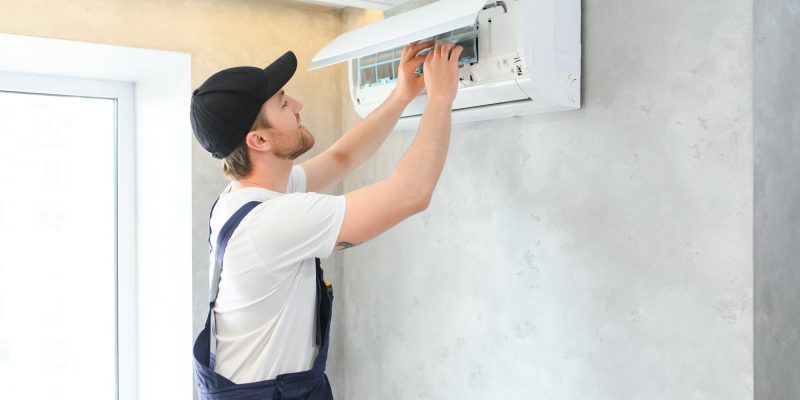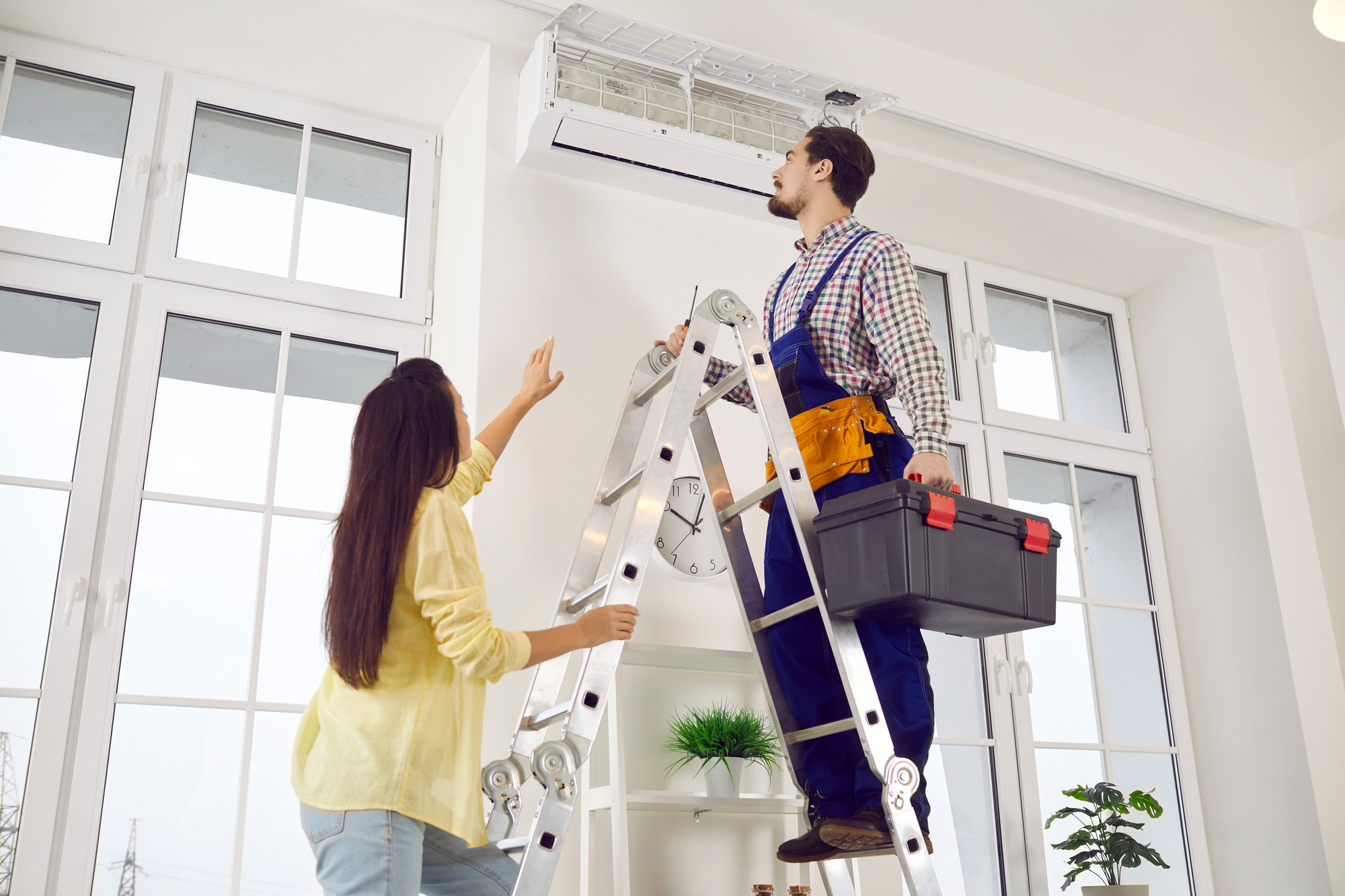Routine maintenance is vital for keeping your heating, ventilation, and air conditioning (HVAC) units healthy for your family’s utmost comfort. Hiring an HVAC technician for scheduled maintenance tasks, such as cleaning, inspection, and tune-ups, helps prevent potential issues and extends the lifespan of your system.
The same holds true when heating and cooling units malfunction, exhibiting inadequate heating or cooling, strange noises, unusual odors, or poor airflow. A specialist can diagnose the problem, perform necessary repairs, and restore your system’s functionality.
When hiring a specialist, you want to ensure you make the right choice for your heating, ventilation, and air conditioning needs. It’s crucial to ask the right questions. Here are 10 must-ask questions when hiring an HVAC technician:
1. Qualifications: Are you licensed and certified?
Don’t underestimate the importance of hiring a professional HVAC technician. Hiring a licensed and certified professional ensures they have met the necessary training and competency requirements. Doing so helps ensure the quality of their work and compliance with industry standards.
Many states or local jurisdictions require HVAC professionals to obtain a license to work in the field. Licensing requirements vary, but they often involve passing an exam that tests the applicant’s knowledge of heating and cooling systems and safety practices.
Additionally, certifications from industry organizations, such as North American Technician Excellence (NATE), can demonstrate the individual’s expertise and commitment to professionalism.
2. Experience: How many years of experience do you have in the HVAC industry?
Experience matters when it comes to handling complex heating and cooling units. An experienced professional will have encountered various issues and gained the necessary expertise to diagnose and solve problems efficiently.
The ideal number of years of experience for a good technician can vary depending on various factors, including the complexity of the heating and cooling systems they encounter, their specialization level, and their ability to effectively handle heating and cooling issues. However, as a general guideline, the most reliable technicians typically have at least two to five years of hands-on experience in the field.
3. Specialization: Do you specialize in a particular HVAC system?
If you’re looking for an HVAC technician, it’s important to consider their level of specialization. Residential technicians primarily work with heating, cooling, and ventilation units found in homes. They’re knowledgeable about repairing furnaces, air conditioners, heat pumps, ductwork, and thermostats. On the other hand, commercial technicians focus on larger-scale heating, cooling, and ventilation repair projects. They handle complex equipment, including rooftop units, chillers, boilers, and large-scale ductwork systems.
With the increasing emphasis on sustainability and environmentally friendly practices, some technicians specialize in green technologies. They’re familiar with eco-friendly heating and cooling units, renewable energy sources, and energy-efficient technologies like geothermal and solar-powered heating and cooling systems.
Moreover, if you have a specific brand of equipment, it’s best to find a technician who specializes in that brand. Expert knowledge and experience can lead to more effective troubleshooting and repairs.
4. References: Can you provide references from previous clients?
Asking for references allows you to gauge the specialist’s reputation and the satisfaction of their past clients. Reach out to these references to better understand their experiences and the quality of work provided.
5. Insurance: Do you have liability insurance?
HVAC work involves potential risks, such as accidental property damage or personal injury. Hiring a heating and cooling specialist with liability insurance protects you from potential liabilities that may arise during the job.
6. Timeliness: Can you provide an estimate of how long the job will take?
Knowing the estimated timeline helps you plan accordingly, especially if you have other obligations to consider. Minor repairs may take a few hours, whereas major repairs may take a day or two.
7. Pricing: Can you provide a detailed breakdown of the costs?
It’s essential to clearly understand the pricing structure to avoid any surprises later on. Ask for a detailed breakdown of the costs, including labor, parts, and additional fees.
The average cost of repairs varies depending on the type of repair needed, the extent of the problem, the region you’re in, and the contractor you hire. For a minor repair, like fixing a clogged drain line, replacing a capacitor, or repairing a thermostat, the cost can range from USD$100 to USD$500.
More significant repairs, such as fixing a refrigerant leak or replacing a compressor, usually range from USD$500 to USD$2,000 or more, depending on the complexity and size of the system.
8. Maintenance: Do you offer maintenance services or service agreements?
Regular maintenance is vital for the optimal performance and longevity of your units. Inquire about maintenance services or service agreements that the professional may offer to ensure your system receives the necessary care in the long term.
9. Guarantees and Warranties: What guarantees or warranties do you provide for your work?
A reputable technician stands behind their work and may offer guarantees on their services and parts. Clarify what these guarantees or warranties cover and for how long.
10. Energy Efficiency: How can you help improve the energy efficiency of my HVAC system?
Energy efficiency is environmentally friendly and helps lower your utility bills. A knowledgeable heating and cooling professional should be able to offer insights and suggestions on how to improve your system’s energy efficiency.
Conclusion
Investing in routine HVAC maintenance can help prevent costly repairs by addressing potential issues before they escalate. By asking these crucial questions, you can make an informed decision when hiring an experienced HVAC specialist. Remember, taking the time to find the right professional for the job will ensure your heating and cooling units operate efficiently, keeping you comfortable throughout the year.





















